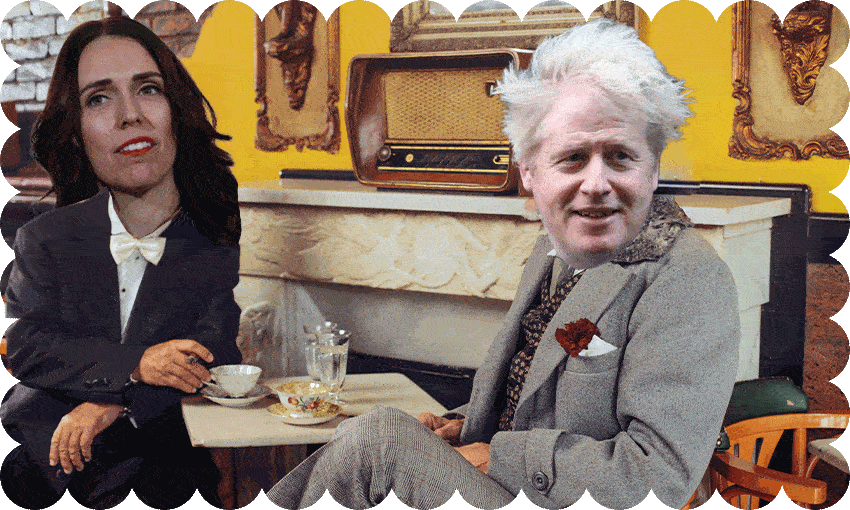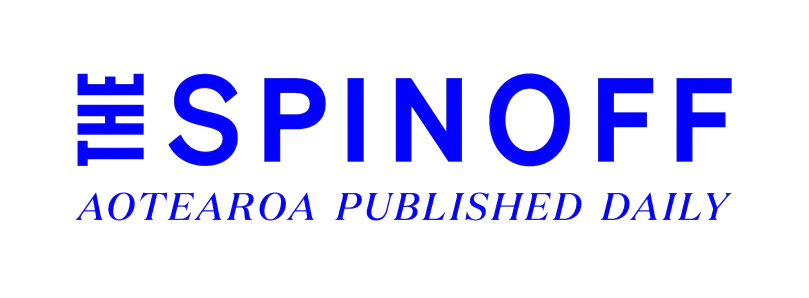A new era for the health system
Today is D-Day for the health reforms. While practitioners are hopeful, the day dawns on a health system under very real pressure.
Mōrena and welcome to The Bulletin for Friday, July 1, by Anna Rawhiti-Connell. Presented in partnership with Z Energy.
In today’s edition: $1.8b trade deal with EU secured; Auckland council takes middle round on heritage protections; flu driving majority of respiratory-related hospitalisations; but first, a new era for the health system starts today.
Margie Apa and Riana Manuel - the women in charge of rebuilding New Zealand’s health system (Photos: supplied, Brett Phibbs/RNZ)
What’s changing and what will it mean for you?
Introduced in 2001, district health boards (DHBs) represented the fourth iteration of health system transformations in New Zealand since the beginning of the 1980s. From today DHBs are no more. For a good quick overview of what this means I recommend this from 1 News’ Nicole Bremner and this cheat sheet from Stuff’s Hannah Martin. If you prefer rugby analogies, Stuff’s Chris Hyde has an explainer comparing the old system to the NPC and the new one to super rugby. Essentially it’s highly unlikely patients will notice much difference to start with. There has been a lot of reassurance from health care providers that for their communities and patients, very little will change.
When was reform put on the agenda?
This reform programme was first signalled in the 2020 Health and disability system review. The review recommended that 20 DHBs be reduced to between eight and 12 within five years. In 2021, the government announced that all 20 DHBs would be replaced by one national organisation, Health NZ, and that a Māori Health Authority would be created. Today, the Pae Ora bill comes into force and those entities begin steering the health system through the transition. Heading the two new agencies are Margie Apa (Health NZ) and Riana Manuel (Māori Health Authority - MHA). Toby Manhire spoke with both of them at length in March.
Hypothetical future arrives as present day problems mount
This change is happening against a backdrop of a health system that’s had its faults, failings, pressure points and capacity constraints magnified over the last two years. Reading through coverage in the lead up to today, health practitioners seem to be hopeful about the future but are incredibly weary. They’re desperate for some alleviation of the very present day issues they are confronting, some of which have been flagged for some time. The Royal College of GPs has indicated that meeting the expectations of the reforms is contingent on "frontline issues" being urgently addressed. Listening to Today FM this morning, Tova O’Brien asked Margie Apa about getting nurses onto the residency fast track. Apa said Health NZ were pushing to get nurses added. Health minister Andrew Little repsonded by repeatedly saying it’s never been easier for a nurse to cross the border and come and work here.
The hope for the Māori Health Authority
The vaccination rollout highlighted long-standing health inequities for Māori and Pacific people. Much of the hope about what happens from today is based on anticipation of what Riana Manuel says is a Treaty partnership turned into a functional and operating reality. As Stuff’s Ripu Bhatia reports, practitioners are excited but realistic. Asked about whether the MHA was another layer of bureaucracy or an unnecessary separate system, Manuel points to the Covid response from kaupapa Māori providers as an example of the nimble and action-focused approach the MHA can take and says it wasn’t just Māori who benefitted from what those providers stood up.
A vital message from The Spinoff’s publisher, Duncan Greive:
If you’re reading this, you’re hopefully getting value out of The Spinoff. Yet like many publishers, we’ve suffered a significant drop in members, despite our costs continuing to increase. On one level I understand why our membership has dropped away. As the cost of living has reached new heights and the pandemic has become less of an urgent news event and more of a part of day-to-day life, it’s totally normal to feel like you don’t need to support your local media organisation.
The promise we’re making to you is that we’re actually better suited to times like this than the pandemic itself. Of course we will continue to write about Covid-19 and the many effects it’s having on society, but our plan now is to return to something more of what made us, which is coverage of culture, politics, business, te ao Māori and more with heart and humour.
But we can’t do it without you. We need your support more than we ever have. So please, if you can, click here to support The Spinoff by becoming a member today.
Free trade agreement secured with European Union
Prime minister Jacinda Ardern and European Commission President Ursula von der Leyen announced the deal early this morning. After four years of negotiating, getting the deal over the line came down to the wire with Ardern drumming up support from EU leaders at the NATO summit, while trade minister Damien O’Connor spent the week in Brussels hammering out the final details. The deal is expected to increase the value of New Zealand exports to the EU by $1.8 billion over the next 13 years. There will be immediate tariff elimination for all kiwifruit, wine, onions, apples, mānuka honey and manufactured goods, as well as almost all fish and seafood, and other horticultural products. Tariffs will come off dairy products more slowly. There had been some concern that we’d have to change the names of many of the cheeses we make here but it looks like we’ll only need one round of Cheese Name Idol to replace feta. Plenty of time, that specification doesn’t come into force for another nine years.
Auckland council takes middle round on heritage protections
As Stuff’s Todd Niall reports, Auckland council have voted to broadly shrink the size of protected “Special Character Areas” (SCA) in older suburbs from around 21,000 homes to 15,000. In a marathon 11-hour meeting Auckland councillors finalised the modification of its 2016 Unitary Plan to fit with new intensification rules the government and the National party believe will boost housing supply. The Herald’s Bernard Orsman has called the vote a middle ground, saying the council is still protecting much of the city's areas of historic housing, while rezoning other areas for intensification. The most impacted areas are St Marys Bay, Birkenhead and Northcote, Epsom, Remuera and Parnell. Mt Albert gets some change, and most of Ponsonby and Grey Lynn is unaffected.
Covid reinfection advice changes, reporting now includes other respiratory illnesses
As the rolling seven-day average for Covid cases rises, the traffic light setting wasn’t changed and we remain at orange. What was particularly notable about yesterday’s announcement was the change to the advice about reinfections. Stuff has an explainer here but essentially if you have recovered from Covid but experience symptoms 29 days or more after that infection, you should take a test and will need to isolate if you test positive. Up until now, the advice has been that you don’t need to test again, even with symptoms, until 90 days after your previous infection. The ministry of health is now also providing updates on other respiratory illnesses every Thursday. Of the 68 people in Auckland and Counties Manukau hospitals for severe acute respiratory infections, 12.7% of people are there because of Covid, while 68.4% have been hospitalised by influenza. Michael Baker wants the government to look at legislating stay-at-home orders for the flu.
Shy small businesses are holding the nation back
Why do so few of our small businesses make the leap to become bigger, faster-growing engine rooms for economic growth and higher wages? Curiously, Aotearoa also has a long tail of older business owners that seem comfortable bumbling along with sub-scale firms that would do better with bigger and more ambitious owners. This week Bernard Hickey talks to ABC Business Sales MD Chris Small about why so many business owners won’t jump up, or out, and why it’s holding back the nation as a whole.
Got some feedback about The Bulletin, or anything in the news? Get in touch with me at thebulletin@thespinoff.co.nz
If gifting fellow prime ministers a stack of local LPs is the new tradition, which discs should Jacinda Ardern give Boris Johnson tonight? Toby Manhire has 10 suggestions for No 10. Shanti Mathias talks to parents who conceal their children’s faces online for privacy reasons. Esther Whitehead explains what the calorie-counting myth teaches us about carbon. Joanna Bennett writes about how the effects of overturning Roe v Wade will extend to pregnant people miscarrying as well as those seeking terminations.
Brothers make national debuts on the same day
Big weekend of rugby union and rugby league ahead. The All Blacks play Ireland at Eden Park on Saturday. Stuff’s Paul Cully has this piece on the Fainga'anuku brothers. Leicester Fainga’anuku will make his debut for the All Blacks this weekend while Leicester's brother Tima was also named to debut off the bench for Tonga in their game against Fiji on Saturday. The Warriors, who are back on home ground for the first time in two and half seasons, play at Mt Smart on Sunday. It looks like the willingness from the Warriors to do their bit for the competition over the last two years may pay off according to this report. Australia and New Zealand will host the Fifa women’s football world cup next year. In Australia, Fifa will have exclusive use of stadiums used by league clubs for nine weeks, which means more NRL games could be played over here.
E.T. was jello in a T-shirt
Today’s long read is pure whimsy for the weekend ahead after a long week. It’s from Anna Wiener at the New Yorker and is a deep dive into foley artists, the craftspeople who create custom sound effects for film, television, and video games. They had me at “E.T. was jello in a T-shirt. The Mummy was scratch potpourri.” I promise that no matter what kind of films you’re a fan of, there’s a revelation for you in this piece about how the sound effects were created.










